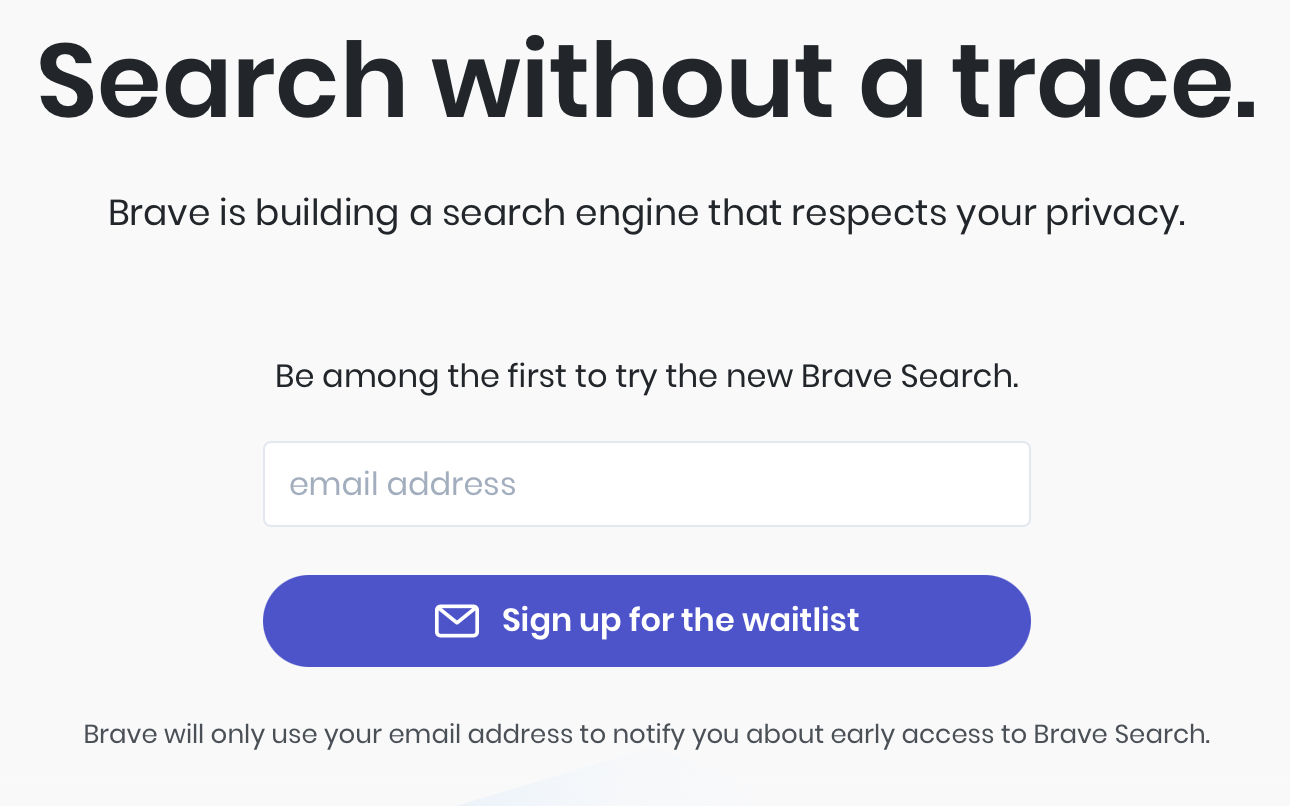Brave, makers of an open-source web browser, are launching a privacy-focused alternative search engine that will offer options for ad-supported and ad-free search results.
Following Brave’s acquisition of Tailcat, a search engine developed by the former Cliqz team, the company announced its forthcoming product known as Brave Search.
Brave Search is being touted as “the first private alternative to Google Search and Google Chrome on both mobile and desktop.”
That’s technically true. While private alternatives to Google exist, they do not offer both a search engine and browser on mobile and desktop.
DuckDuckGo is the most successful private alternative to Google at the moment, but the one thing it’s lacking is a desktop browser. Though it does offer a mobile browser and its search engine is accessible from any browser on any device.
The Tailcat search engine will become the foundation of Brave Search, which will be integrated into the Brave browser.
Brave Search will also be accessible outside of the company’s browser by navigating to brave.com/search – though if you go there right now all you’ll see is the option to sign up to the mailing list.

There’s currently no launch date for Brave Search. Those who sign up for the mailing list will be first to use the new search engine when it’s ready for testing.
In a press release, Brave explains how its search engine differs from the ones developed by “Big Tech”:
“Under the hood, nearly all of today’s search engines are either built by, or rely on, results from Big Tech companies. In contrast, the Tailcat search engine is built on top of a completely independent index, capable of delivering the quality people expect, but without compromising their privacy. Tailcat does not collect IP addresses or use personally identifiable information to improve search results.”
There’s evidence that users are starting to care more about their privacy online. Brave’s privacy-oriented web browser has grown from 11 million monthly active users to hover 25 million.
DuckDuckGo is seeing record growth as well, having hit 100 million daily searches in January and surpassing Bing to become the #2 mobile search engine in the US.
Another thing that may set Brave Search apart from other alternative search engines is the potential for a premium, ad-free search experience.
The company says it’s considering offering both free and paid versions of its search engine. The free version will be subsidized with the privacy-based ad platform Brave Ads.
“We’re currently thinking through different search experiences to offer our users. While there is a cohort of users who have long clamored for a premium ad-free search experience, others prefer a free, ad-supported model. We think offering a choice is best.”
Brave Search will work seamlessly with the Brave browser, though users of the browser can continue to set any search engine as their default choice.
Source: Brave





![AI Overviews: We Reverse-Engineered Them So You Don't Have To [+ What You Need To Do Next]](https://www.searchenginejournal.com/wp-content/uploads/2025/04/sidebar1x-455.png)